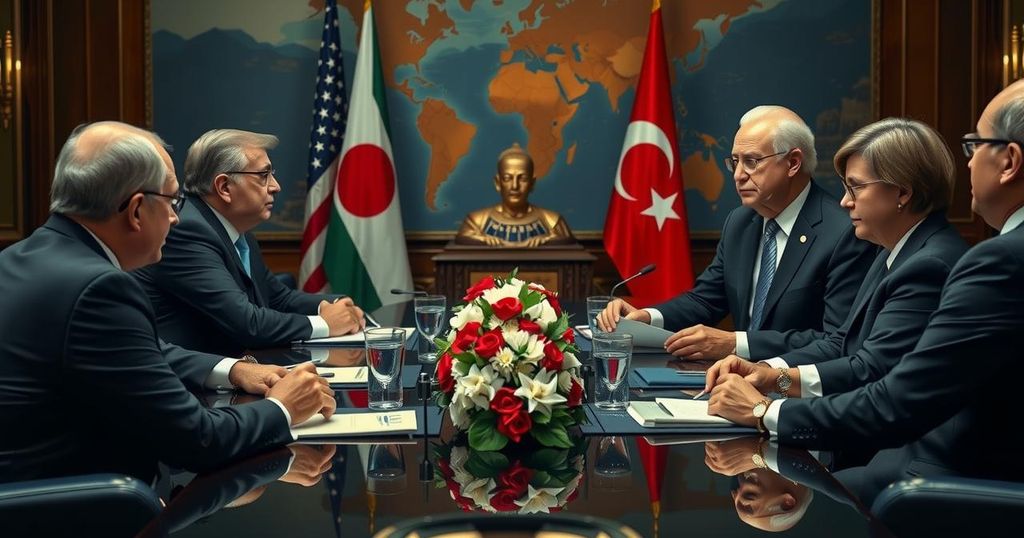President Biden plans to encourage President Xi to limit North Korea’s military support for Russia during their last meeting at the APEC conference. This meeting occurs just before Biden’s exit from office, with increasing concerns about North Korea’s destabilizing activities. The broader context includes fraught US-China relations and potential shifts under a new administration.
President Joe Biden is scheduled for what is expected to be his final meeting with Chinese President Xi Jinping, during the Asia-Pacific Economic Cooperation (APEC) conference in Peru. During this critical interaction, Biden aims to persuade Xi to mitigate North Korea’s support for Russia in the ongoing conflict in Ukraine. This meeting takes place just over two months before Biden’s transition of power to President-elect Donald Trump, and outlines key concerns regarding North Korea’s military cooperation with Russia. In recent discussions involving Biden, South Korean President Yoon Seok Yul, and Japanese Prime Minister Shigeru Ishiba, significant emphasis was placed on condemning North Korea’s involvement in aiding Moscow against Ukrainian forces. White House officials expressed concerns regarding North Korea’s trade relationship with China, urging Xi to exercise more influence to prevent further destabilization in the region. They described North Korea’s military assistance as “dangerous and destabilizing cooperation.” Additionally, there are overarching discussions about various subjects impacting US-China relations, including human rights, technology competition, and tensions surrounding Taiwan. Analysts suggest that the outcome of this meeting could significantly affect the dynamics of these relationships, particularly with Trump’s presidency approaching. Corporations operating in the US are already diversifying their supply chains away from China, which could further alter economic interactions. Biden has emphasized the importance of his rapport with Xi, developed over years of collaboration as vice presidents. However, their relationship has faced numerous challenges, including China’s increasing military assertiveness in both the East China Sea and the South China Sea and a history of cyber espionage. This final face-to-face dialogue symbolizes not only an ending for Biden’s administration but may foreshadow the evolving diplomatic landscape as his successor assumes office.
The geopolitical landscape preceding President Biden’s anticipated meeting with President Xi Jinping is marked by increasing tensions linked to North Korea’s military cooperation with Russia, particularly in light of the ongoing conflict in Ukraine. This meeting is significant as it occurs within a broader context of US-China relations strained by various issues including trade, military presence in contested territories such as Taiwan, and cyber security concerns. As Biden prepares to depart from office, this meeting serves as an essential conclusion to his diplomatic engagements with one of the world’s most influential leaders. Furthermore, the implications of the relationship’s evolution are particularly pertinent given the anticipated foreign policy stances of President-elect Donald Trump, who has emphasized a more adversarial approach toward Beijing.
In summary, Biden’s final meeting with Xi is pivotal in defining immediate US-Chinese diplomatic relations amidst pressing issues such as North Korea’s military support for Russia and the broader regional security framework. The dialogues underline the urgent need for greater Chinese intervention to curb Pyongyang’s activities and address the instability posed by such cooperation. This farewell meeting encapsulates the complex dynamics that will influence future foreign policy, especially with the incoming Trump administration potentially altering the course of these relationships.
Original Source: www.hindustantimes.com







